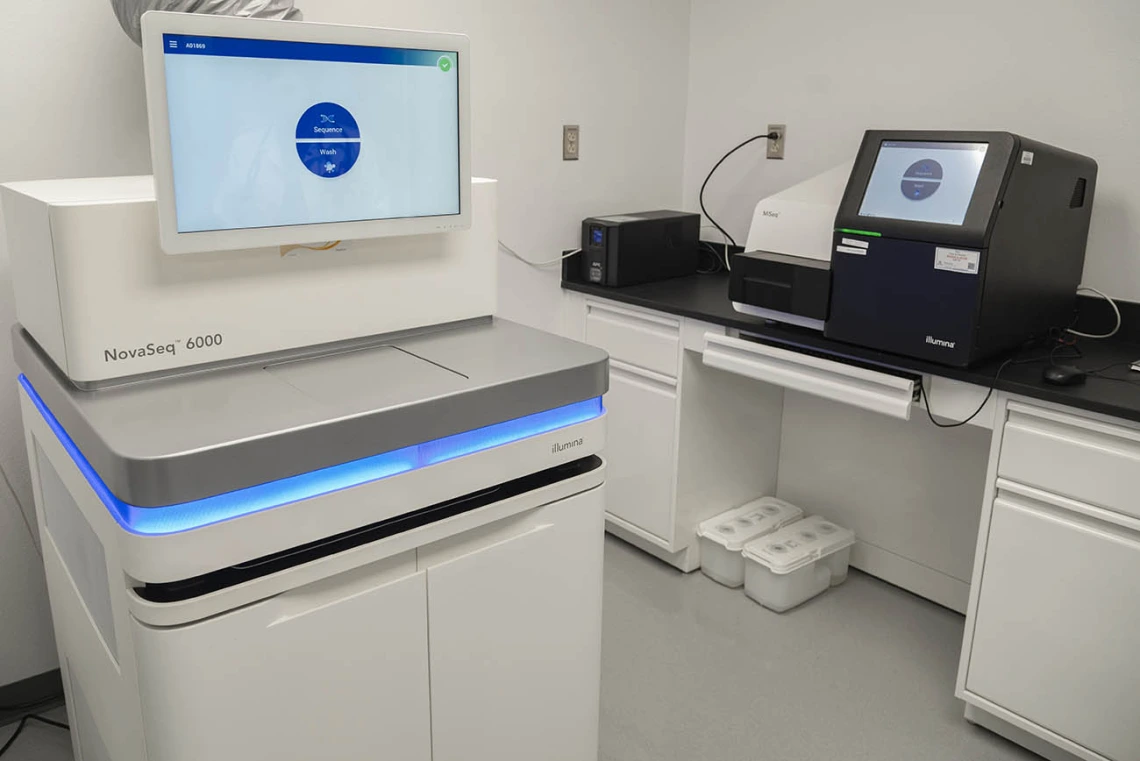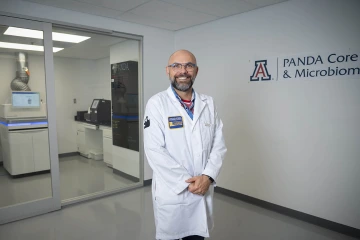Researchers Gain New Tool to Study Rare Childhood Diseases
A new whole-genome sequencer at the Steele Children’s Research Center will expand research capabilities that could lead to earlier diagnoses of diseases and new treatments.

A new state-of-the-art genome sequencing machine will allow the PANDA Core for Genomics and Microbiome Research to expand high-throughput sequencing capacity not only for researchers at the University of Arizona Health Sciences, but also for scientists throughout the state.
The Steele Children’s Research Center at the University of Arizona College of Medicine – Tucson recently became the first academic entity in Arizona to obtain a machine that allows for cost-effective, large-scale whole-genome sequencing.

Daniel Laubitz, PhD, is director of the PANDA Core for Genomics and Microbiome Research at the Steele Children’s Research Center in the College of Medicine – Tucson’s Department of Pediatrics.
Whole-genome sequencing allows researchers and physician-scientists to study entire genomes and identify changes in DNA that can be key to early diagnosis and treatment of a multitude of pediatric diseases, including cancer, developmental disorders and other chronic genetic-based diseases. Whole-genome sequencing is a vital part of designing and developing precision treatments for all populations, which is a focus of UArizona Health Sciences.
Whole-genome sequencing can cost hundreds of thousands of dollars and take months to accomplish. With this new and more powerful sequencing platform, researchers can complete whole-genome sequencing on 48 human genomes in as little as 40 hours and at a fraction of the cost.
The $1.3 million sequencer is located at the Steele Center’s PANDA Core for Genomics and Microbiome Research, which provides technical and research support for a variety of studies. For example, researchers are attempting to locate a genomic biomarker for children's postinfectious autoimmune encephalopathy, a condition that affects the brain and can lead to changes in neurologic function, mood and behavior. It can be treated within a window of time, but often goes undiagnosed for too long.
“This expansion of the PANDA Core will also benefit basic and translational scientists by providing local access to this state-of-the-art sequencing technology for demanding projects requiring detailed analysis of the microbiota, understanding the genetics and genomics at the single cell level, and many other approaches,” said Daniel Laubitz, PhD, director of the PANDA Core. “Through the PANDA Core for Genomics and Microbiome Research, the genome sequencing machine will be available to support investigators across the University of Arizona, at other academic institutions and in private industry.”
The Phoenix Women's Board of the Steele Children's Research Center, affectionately known as PANDA (People Acting Now Discover Answers), raised the funds to purchase the new sequencer. Founded in 1999, PANDA supports discovery processes to improve treatments and cures for devastating childhood diseases.
“This is a monumental advancement in the research and clinical areas. This would never have happened without the support of the PANDAs,” said Fayez K. Ghishan, MD, PANDA Endowed Director of the Steele Children’s Research Center and the Horace W. Steele Endowed Chair in Pediatric Research of the Department of Pediatrics in the College of Medicine – Tucson.
Contact
Brian Brennan
Health Sciences Office of Communications
520-621-3510
brianbrennan@arizona.edu

